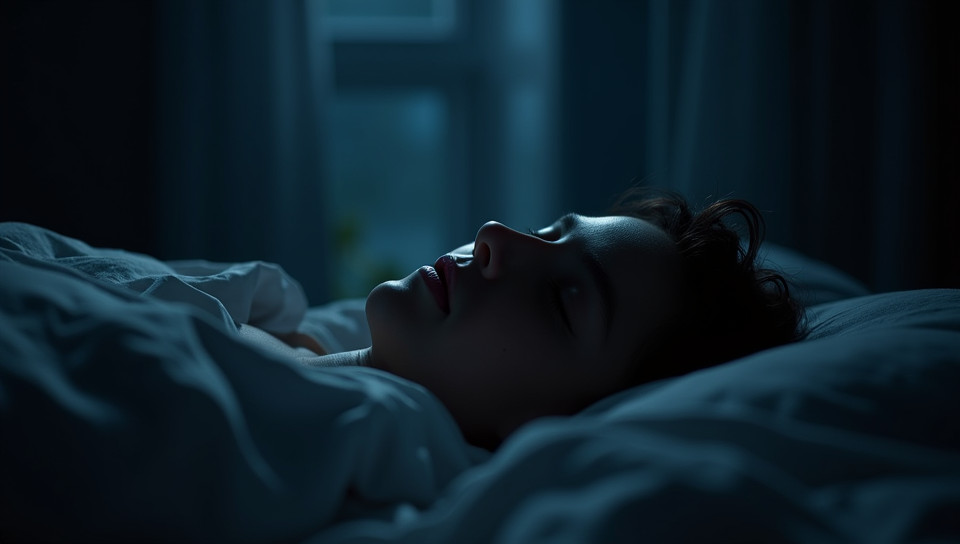Darkness boosts melatonin levels 37%

The Power of Darkness: Unlocking Better Sleep and Health
As we go about our daily lives, it's easy to get caught up in the hustle and bustle of modern society. We often find ourselves exposed to artificial light sources for extended periods, whether it's from our smartphones, computers, or televisions. But what if I told you that embracing darkness could have a profound impact on your health? Research has shown that spending time in darkness can boost melatonin levels, leading to improved sleep quality and a range of other benefits.
What is Melatonin?
Melatonin is a hormone produced by the pineal gland in the brain. It plays a crucial role in regulating our sleep-wake cycles, often referred to as our circadian rhythms. When it's dark outside, melatonin production increases, helping us feel drowsy and relaxed, making it easier to fall asleep. Conversely, when it's light outside, melatonin production decreases, allowing us to stay awake and alert.
The Impact of Artificial Light on Melatonin Levels
Artificial light sources can trick our brains into thinking it's still daylight, even when it's not. This can suppress melatonin production, leading to difficulty falling asleep or staying asleep throughout the night. Blue light emitted from electronic devices is particularly problematic, as it can delay melatonin release by up to two hours.
- Sleep disruptions due to artificial light exposure
- Increased risk of sleep disorders, such as insomnia and sleep apnea
- Impaired cognitive function and memory
- Weakened immune system
The Benefits of Darkness on Melatonin Levels
Spending time in darkness can have a number of benefits for our health. By allowing melatonin production to increase naturally, we can:
- Improve the quality of our sleep
- Enhance our mood and reduce stress levels
- Increase our energy levels and overall sense of well-being
- Support immune function and reduce inflammation
Embracing Darkness in Everyday Life
So how can you incorporate more darkness into your daily routine? Here are a few simple tips:
- Turn off electronic devices at least an hour before bedtime
- Use blackout curtains or shades to block out any external light sources
- Create a relaxing bedtime routine that involves dim lighting and calming activities
- Consider using a melatonin supplement if you're struggling with sleep disorders
Conclusion
Incorporating darkness into our daily lives can have a profound impact on our health, particularly when it comes to melatonin levels. By understanding the importance of natural light exposure and taking steps to limit artificial light sources, we can improve the quality of our sleep, enhance our mood, and increase our overall sense of well-being. So next time you're tempted to scroll through your phone before bed, remember: darkness is not something to be feared, but rather something to be celebrated.
- Created by: Susan Gutierrez
- Created at: Oct. 13, 2024, 8:26 p.m.
- ID: 12499









